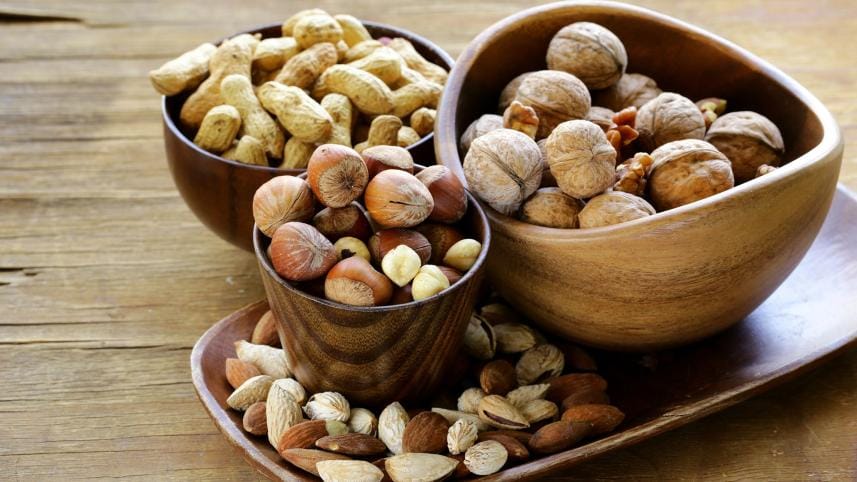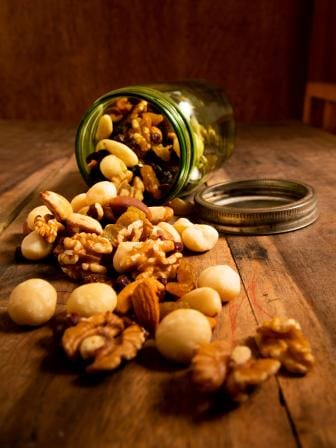Why go nuts: All the benefits you can reap

Consuming nuts as part of a healthy diet may be beneficial to health. Nuts are high in unsaturated fatty acids and other nutrients. They are also great as a snack because they are cheap, easy to store, and portable. One disadvantage of nuts is that some are high in calories, so portion control is essential. However, choosing nuts over a less healthy snack may help you stick to a heart-healthy diet.
Nuts are widely praised for their delicious flavour and ease of preparation, but the flavour is not the only reason they are so popular. Scientists have long lauded the health benefits of including nuts in your daily diet.
There are numerous types of nuts. Raw mixed nuts typically include almonds, pistachios, cashews, walnuts, hazelnuts, etc. They are easy to find at almost any grocery store, and they are loaded with nutrients.
Health benefits
Nuts are a nutrient-dense food that contains the majority of the vitamins and minerals the body requires. They are a major source of alpha-lipoic acid (ALA), and omega-3 fatty acids that have a wide range of health benefits, from reducing rheumatoid arthritis to protecting against Alzheimer's and dementia.
Loss of weight
Nuts are mostly fats, which may seem counterintuitive for weight loss. However, the fats in nuts are almost entirely unsaturated, which means they make you feel fuller, allowing you to eat less over time. According to studies, people who eat nuts frequently have a lower risk of gaining weight than those who eat nuts infrequently.

Heart disease prevention
Many studies have been conducted to demonstrate the beneficial effects of nuts on heart health. Eating nuts at least four times per week is linked to a lower risk of coronary heart disease and myocardial infarction.
Reduce cholesterol
Nuts also play an important role in cholesterol regulation. Experts discovered a link between eating nuts at least a few times per week and lower LDL cholesterol and triglyceride levels in the body. Lower risk of stroke or cardiovascular disease is associated with improved cholesterol.
Nutrition
Nuts are high in vitamin E, which is a group of eight antioxidant compounds that help prevent cancer and osteoporosis.
Nuts are also great sources of:
- Folic acids
- Magnesium
- Potassium
- Calcium
- Phosphorous
Nuts are high in fibre, with almonds, hazelnuts, pistachios, and pecans among the best. A high-fibre diet has been linked to a lower risk of a variety of chronic diseases, including heart disease and diabetes. Increasing your fibre intake can also help to support and regulate your digestive function.
Polyphenols in nuts also help to keep our guts healthy by feeding the good bacteria that live there. They do this by fuelling the bacteria, allowing them to grow and multiply. Certain bacteria, in turn, produce short-chain fatty acids, which have numerous benefits for both our gut and our overall health.
Despite being a healthy food for many people, tree nuts are one of the eight most common food allergens and can cause allergic reactions, including severe anaphylaxis. Cross-contamination is a particular concern for those who are allergic to nuts and necessitates extra caution when eating out.



 For all latest news, follow The Daily Star's Google News channel.
For all latest news, follow The Daily Star's Google News channel.
Comments